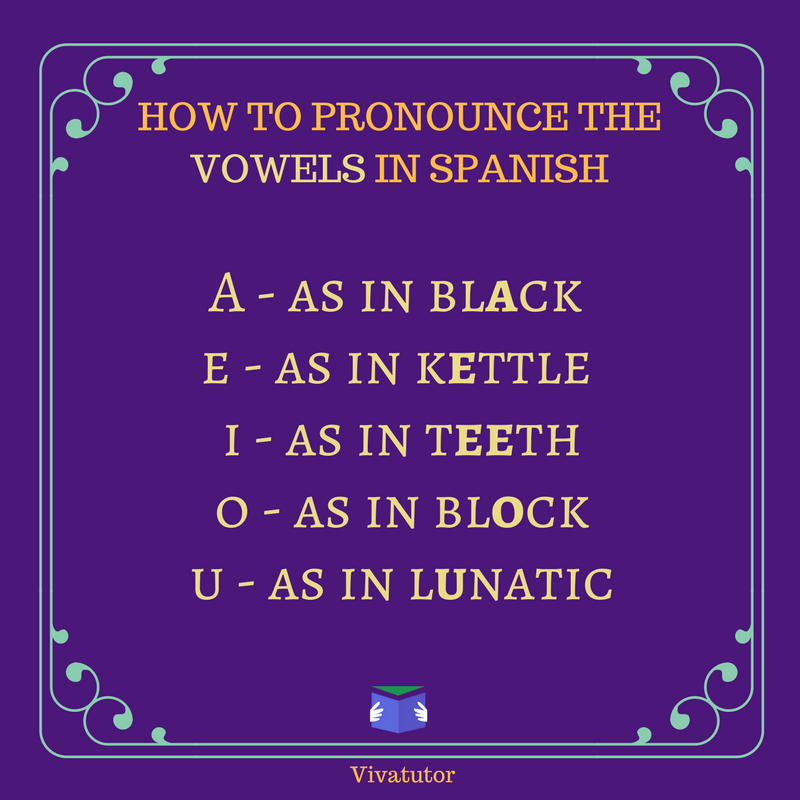Top 7 Spanish spelling rules
The changing "G"
- When a "g" is before an "e" or an "i", the sound is of a strong English "h".
Ex:
Genial (great) - Sounds like "he-nial"
Gigante (giant) - Sounds like "hee - gan-teh"
- When a "g" is before an "a", "o" or "u", the sound is of a soft English "g".
Ex:
Gato (cat) - Sounds like "ga-toh"
Guacamole (Mexican avocado sauce) - Sounds like "gwa-ka-mo-leh"
Gota (drop) - Sounds like "goh-tah"
Guapa (pretty) - Sounds like "gwa-pah"
- If we want a soft "g" before "e" or "i", we put an "u" in between:
Guerra (war) - sounds like "geh-rah"
Guitarra (guitar) - sounds like "gee-ta-ra"
- If we want a strong "g" with "o","u" or "a", we would choose a "J".
The "j" always sounds strong, like a strong English "h", no matter what letter goes after.
Jungla (jungle)- Sounds like "hun-glah"
Jamón (Spanish ham) - Sounds like "ha-mon"
If I can achieve that strong sound with a "g", usually we choose the "g". However, there are a few cases when we'd use the "j".
The most important rule is words ending in the following have a -j:
- aje, -eje, -jero, -jera, -jeria
The changing "C"
The rule with the "c" is very similar to the previous one, so it's a win win!
- If a "c" goes before an "e" or an "i", it has a "th" sound.
Ex:
Cena (dinner) - sounds like "theh-nah"
Cine (cinema) - sounds like "thee-ne"
- If a "c" goes before an "o", "u" or "a", it has a "K" sound.
Ex:
Cuna (crib) - sounds like "Ku-nah"
Cocina (kitchen) - sounds like "koh-thee-nah"
Cara (face) - sounds like "kah-rah"
- If I want a "th" sound with "o", "u" or "a", we use a "z".
The "z", just like the "j" on the previous rule, it always has the same sound, a "th" sound, no matter what vowel is after.
Ex:
Zapato (shoe) - sounds like "thah-pa-toh"
Zona (zone) -sounds like "thoh-na"
Zumbido (buzzing) - sounds like "thum-bee-doh"
- If we want a "k" sound with "e" or "i", we use a "qu".
Again, the "q", which always goes with an "u" (so, "qu"), has always the same sound.
Ex:
Queso (cheese) - sounds like "keh-soh"
Quien (who) -sounds like "kee-en"
The u in "gu" and "qu" + ü
As we saw, the "gu" achieves a soft "g" sound before an "e" or an "i".
The "u" is the only difference that makes this combination possible, so you need to ignore this "u".
Ex:
Guía (guide) - sounds like "gee-ah"
Guinda (cherry) - sounds like "geen-dah"
Only when there are two dots on the "u", like this "ü", you pronounce the "u" in this situation.
Those two dots are like a mark for you to know to pronounce it.
Ex:
Pingüino (penguin) - sounds like "peen-gwee-noh"
The same way, the "qu" achieves a "k" sound before an "e" or an "i". Ignore this "u" too.
99% of words with "qu" have an "i/e" after so you can ignore the "u" pretty much everytime you see "qu".
Ex:
Querer (to want) - sounds like "keh-rer"
Quince (fifteen) - sounds like "keen-theh"
The double r
Please, don't stress about the pronunciation of this. If you don't know how to pronounce it, do it like a single, English like "r" and everybody will understand you.
- Beginning of a word
This will be a strong r, like in radio
- End of syllable
If it's the end of syllable you will pronounce it strong too.
It can be the end of the word (ver) or in the middle (arbol)
- Beginning of syllable but middle of the word
If it's a single "r" at the beginning of the syllable but not beginning of the word, like amarillo, that's the only time it's actually soft.
The only time this is pronounced strong, is when it's double, like arriba.
Example of a pair, one beginning of the syllable soft and, the other one double would be Perro (dog) / pero (but).
Double l
The "ll" has the sound of strong "l" and the same sound of a "y".
Ex:
Anillo (ring) - sound like "a-nee-yo"
flequillo (fringe) - sounds like "fleh-kee-yo"
It has the same as a "y" in words like:
Playa (beach)
Typical ñ
This letter is the probably the most representative of the Spanish language. Sounds similar to a "nh".
Uña (nail) - sounds like "u-nha" Niñero/a (babysitter) - sounds like "nee-nhe-roh"
Ch
This combination sounds close to "ts" but a bit stronger.
Ex:
Bizcocho (sponge cake) - sounds like "beeth-ko-tso"
Mochila (backpack) - sounds like "mo-tsee-la"
H
Last but not least, the poor muted "h". The "h", when it goes by itself, it doesn't sound, it's never pronounced. This is a simple rule because it doesn't got any exception!
Ex:
Habitación (room) - sounds like "a-bee-ta-thee-on"
Adherir (to stick) - sounds like "a-deh-reer"
And I obviously had to mention this one:
Hay (there is/are) - sounds like "a-ee" or like English "eye".
Vowels
This picture will help you remember what is the exact sound of the vowels in Spanish:

That is all!
Let me know if you have any question in the comments section below,
¡Hasta luego! :)